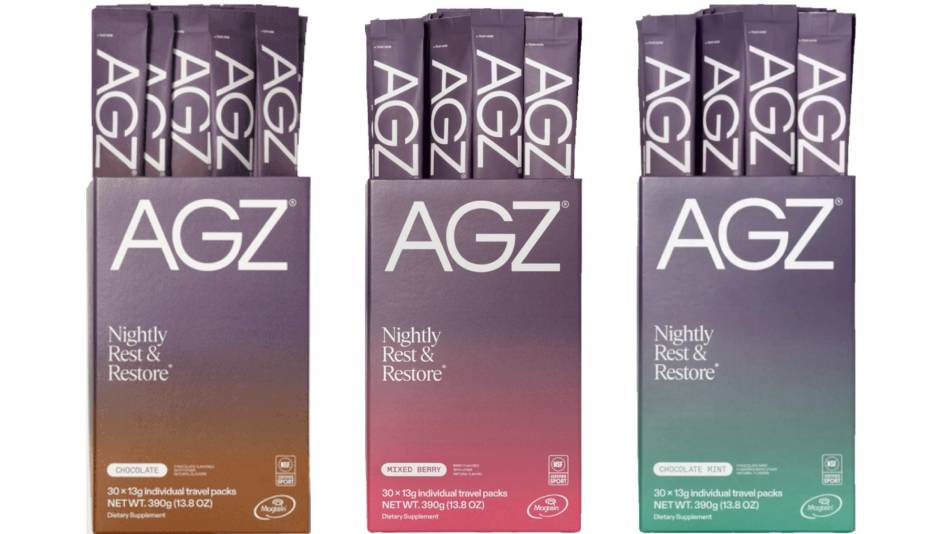
Answer:
AGZ, a dietary supplement by Athletic Greens (the company that manufactures Athletic Greens AG1), claims to "support restful, restorative sleep" without melatonin. The supplement can be mixed with water or milk and taken before bedtime allegedly to "cue your body and mind to start winding down."
Unfortunately, as discussed below there do not appear to be any clinical studies assessing AGZ for sleep. Furthermore, only a few of the ingredients used in AGZ have evidence of improving sleep but typically at a higher dose than in AGZ. AGZ is also relatively expensive, and its most promising ingredients can be purchased individually for less than the cost of AGZ.
Also see our article about supplements and lifestyle changes to improve sleep, which includes information about other supplements and ingredients including Prevagen and Cyracos (found in Vitacost Lemon Balm Extract Featuring Cyracos).
What Is In AGZ?
Each 1-packet serving of AGZ is listed as providing the following ingredients. We have not tested AGZ, but if it contains what it claims, it can significantly contribute to meeting the Daily Values (DVs) for vitamin B-6, magnesium, and zinc. None of the amounts pose a safety concern in themselves.
- Vitamin B-6 (as pyridoxal-5-phosphate or P5P): 5 mg (294% DV)
- Magnesium (as Magtein magnesium L-threonate, magnesium bisglycinate): 250 mg (60% DV)
- Zinc (as zinc citrate): 12 mg (109% DV)
- Glycine: 2 grams
- Myo-inositol: 1 gram
- Ashwagandha leaf extract (standardized to 5% withanolides): 300 mg
- L-theanine: 200 mg
- Saffron stigma extract (standardized to 3% crocins): 28 mg
A 1-packet serving of AGZ also contains 2.4 grams of a "Calming Herbs & Antioxidant Blend" that includes unlisted amounts of chamomile flower extract (standardized to 1.2% apigenin), phosphatidylserine, valerian root extract (0.8% valerenic acid), tart cherry (Prunus cerasus) juice powder, lemon balm aerial parts extract (5% rosmarinic acid), green kiwi (Actinidia deliciosa) fruit powder, Baikal skullcap root extract (30% baicalins), passionflower aerial part extract (3.5% vitexins),
A serving provides 1 gram of fat and 6 grams of carbohydrate (including <1 gram of sugar), providing 25 Calories.
Ingredients in AGZ That Might Improve Sleep
Ashwagandha
Ashwagandha root extract may reduce the time needed to fall asleep, although only by about 5 to 10 minutes at best, and it may not increase total time spent asleep. However, AGZ contains ashwagandha leaf extract, and there does not appear to be evidence that leaf extract without root extract helps with sleep.
Be aware that ashwagandha may cause side effects and drug interactions, although these have generally been shown with root extract due to more extensive research with that form (see Concerns and Cautions for details).
Glycine
In small studies, taking 3 grams of glycine one hour before bedtime has been shown to improve sleep quality, shorten the time it takes to fall asleep, and reduce next-day fatigue (Yamadera, Sleep Biologic Rhythms 2007; Inagawa, Sleep Biologic Rhythms 2006; Bannai, Front Neurol 2012). It is unclear if taking a lower dose, such as the 2 grams included in AGZ, would be beneficial.
Glycine is generally well-tolerated, although it may cause irritability, insomnia, headache, stomach pain, nausea, and diarrhea (Bannai, Seikatsu Eisei 2006; Woods, Eur Neuropsychopharmacol 2012). It may also lower blood pressure and interact with certain medications, such as anticonvulsants and certain atypical antipsychotics like clozapine (Clozaril) (Potkin, Am J Psychiatry 1999; Petersen, Brain Res Bull, 1991).
Myo-Inositol
There is only very preliminary research suggests that myo-inositol might improve sleep quality and sleep duration. More research is needed to confirm. A small study in Iran showed that taking 2 grams/day of myo-inositol along with 200 mcg of folic acid for 10 weeks improved sleep quality by about 1.5 points (on a scale of 0 to 21) and sleep duration by 0.67 points (on a scale of 0 to 3) compared to placebo, although both of these outcomes appeared to be statistically significant due to worsening in the placebo group. There were no between-group differences in time taken to fall asleep, sleep disturbances, use of sleeping medication, or daytime dysfunction due to fatigue (Mashayekh-Amiri, J Matern Fetal Neonatal Med 2022). It is unclear if taking a lower dose of myo-inositol, such as the 1 gram/serving in AGZ, is beneficial for sleep.
Myo-inositol may cause mild gastrointestinal side effects such as nausea, abdominal pain, flatulence, or soft stools (Lam, Cancer Epidemiol Biomarkers Prev 2006).
Saffron
Saffron extract has generally been shown to provide only modest and limited sleep benefits in small, manufacturer-funded clinical trials among middle-aged people with self-reported sleep problems or mild to moderate insomnia (Lopresti, Sleep Med 2021; Pachikian, Nutrients 2021; Lopresti, J Clin Sleep Med 2020). Doses that have demonstrated benefit are similar to the listed dose in AGZ.
Saffron extract may have a blood thinning effect, although evidence is mixed (Heidari, Cardiovasc Hematol Disord Drug Targets 2022; Kianbakht, Phytother Res 2011; Safarinejad, Int J Impot 2010).
Zinc
Zinc is involved in sleep regulation, and higher blood levels of zinc have been associated with better amounts of sleep in studies of infants, pre-adolescents, and adults. However, this does not prove a cause-and-effect relationship, and more research is needed to determine if taking zinc aids sleep and, if it does, the proper dosing. The most compelling human evidence so far for zinc is a 3-month study in Japan that found that ingesting Pacific oyster (providing 15 mg of zinc — which is similar to, but slightly higher than, the amount in AGZ) daily slightly reduced the time taken to fall asleep by 5 minutes and increased the time in non-REM sleep (a measure of sleep efficiency) (Cherasse, Int J Molec Sci 2017).
Zinc supplements cause few immediate side effects other than occasional stomach upset or unpleasant taste, although, in higher doses, it can impair the absorption of certain antibiotics and copper.
Ingredients in AGZ That Might Not improve Sleep
L-theanine
There is conflicting evidence about whether L-theanine, an amino acid found in black and green tea, improves or worsens sleep. It does not appear to be beneficial for reducing stress.
One study found that taking 200 mg of L-theanine (the amount listed in a serving of AGZ) before bed improved time to fall asleep, sleep efficiency and sleep disturbances, although the latter two improvements were statistically significant compared to placebo only due to adverse results in the placebo group (Hidese, Nutrients 2019). On the other hand, another study showed that taking 177 mg of L-theanine with dinner did not reduce fatigue symptoms (Ramani, BBI — Integrative 2024), while a third study found that taking 200 mg of L-theanine twice daily actually decreased total sleep time by 30 minutes per night, which was significant compared to placebo (Moulin, Neurol Ther 2024).
Although one older study found that L-theanine reduced stress associated with cognitive tasks (Kimura, Biol Psychol 2007), more recent studies have not shown a benefit (Moulin, Neurol Ther 2024; Evans, Neurol Ther 2021; Lu, Hum Psychopharmacol Clin Exp 2004).
L-theanine appears to be generally safe, although it may cause headache, may lower blood pressure, and may interact with the effects of the benzodiazepine drug midazolam (Yoto, J Physio Anthropol 2012; Heese, AANA J 2009; Haskell, Biol Psychol 2008; Rogers, Psychopharmacology 2008).
Magnesium
Although several small studies suggest that taking magnesium may shorten the time it takes to fall asleep in older adults with insomnia, it does not appear to improve sleep quality or increase total sleep time, and any benefit has been shown in studies using magnesium oxide or magnesium citrate, providing a total of 320 to 729 mg of magnesium daily (Mah, BMC Complement Med Ther 2021; Abbasi, J Res Med Sci 2012; Ichihara, J Lab Clin Med 1993).
Magnesium L-threonate (Magtein), which is the main form found in AGZ, does not seem to improve sleep. In fact, it may increase the time it takes to fall asleep (Hausenblas, Sleep Med X 2024). AGZ also contains magnesium bisglycinate, which has shown some modest benefits for sleep, although at a higher dose than in AGZ (Schuster, Nat Sci Sleep 2025).
Vitamin B-6
There does not appear to be any evidence that taking vitamin B-6 improves sleep.
"Calming Herbs & Antioxidant Blend" — No Way To Know If It Helps
In general, a few of the ingredients in the "Calming Herbs & Antioxidant Blend" in AGZ might improve sleep or have a calming effect, but since the amounts of these ingredients are not disclosed (which is often the case with "proprietary blends"), it is unclear if the dosage is adequate to have any benefit. Most of the ingredients in this blend are not supported by clinical research for improving sleep.
Ingredients in the blend that might help
Some clinical research suggests that lemon balm extract may improve sleep quality and possibly reduce time taken to fall asleep when taken in doses of 200 to 300 mg/day (Di Pierro, Nutrients 2024; Cases, Med J Nutrition Metab 2010). Similarly, passionflower may be beneficial for reducing stress and increasing total sleep time (Harit, Cureus 2024), while holy basil may reduce stress (Saxena, Evid Based Complement Alternat Med 2012). Tart cherry juices, concentrates and extracts may improve some measures of sleep, such as reducing waking after falling asleep in older adults (Hillman, Nutr Health 2022; Pigeon, J Med Food 2010).
Ingredients in the blend that probably won't help
Despite its purported hypnotic and benzodiazepine-like (anti-anxiety) effects (Shinomiya, Biol Pharm Bull 2005; Viola, Planta Med 1995), there is little evidence that chamomile improves insomnia (i.e., shorten the time it takes to fall asleep, or reduce waking during sleep) (Hieu, Phytother Res 2019).
Although valerian is commonly used as a sleep aid, the evidence behind this use is mixed and at least one review of 37 studies concluded valerian was probably not effective for treating insomnia (Taibi, Sleep Med Rev 2007).
Baikal skullcap appears to have sedative effects and has been used in traditional medicine to treat insomnia, but there do not appear to be clinical studies supporting this uses for Baikal skullcap alone, and this ingredient has been linked with cases of liver injury (LiverTox, 2020).
There does not appear to be evidence that lavender is beneficial for sleep when taken orally. Similarly, there does not appear to be any good evidence that phosphatidylserine improves sleep.
The Bottom Line on AGZ — Is It Worth It?
We don't think AGZ is likely to improve sleep, as only a few of its ingredients have shown possible evidence of benefit and, generally, only when taken at a higher dose than the amount in AGZ. We also don't think it’s worth its price as the product is quite expensive — $2.97 per 1-packet serving.
In contrast, the one sleep-inducing ingredient it does not include, melatonin, has been shown to help people fall asleep sooner when taken before bedtime at a dose as low as 0.1 to 0.3 mg, and it can be purchased at a much lower cost. For example, one of our Top Picks among melatonin supplements can provide 0.3 mg for just one cent, and a moderate dose (e.g., 3 mg) can be had for only 4 cents.
If you want to avoid melatonin, we'd suggest trying ashwagandha, glycine, or saffron in doses that have demonstrated some benefit in clinical research, but we don't recommend combining the ingredients, as there does not appear to be any evidence that taking the ingredients together has greater benefit than the individual ingredients alone or that the combination is safe. Our Top Pick ashwagandha liquid extract provides 24 mg of withanolides per serving from root extract, which is only slightly less than what has shown benefit in clinical research, and costs only 29 cents per day. Similarly, our Top Pick among glycine powders provides a 3-gram serving (which has shown possible benefit for sleep) for only 9 cents per day. If you want to try saffron, we recommend one of our Approved products, which contains a branded saffron ingredient (Affron) in an amount (28 mg) that has shown benefit for sleep in at least two clinical studies, and it costs only 43 cents per day.
Join today to unlock all member benefits including full access to all CL Answers and over 1,400 reviews.
Join NowAlready a member? Sign In Here.
Join now at www.consumerlab.com/join/

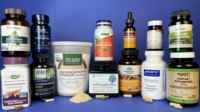
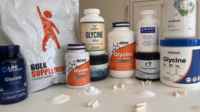
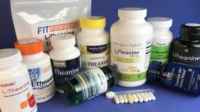
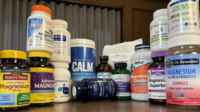
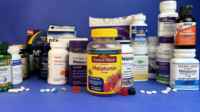
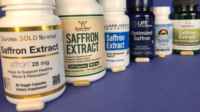
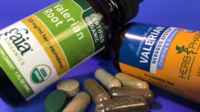
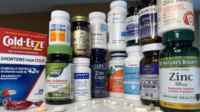
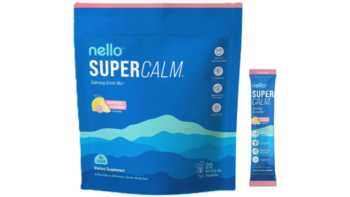


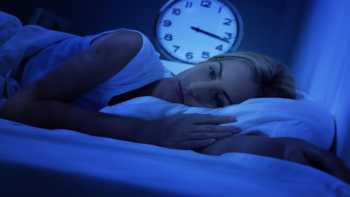





Submit your comment
This feature is restricted to active members.
Join now to add comments and get all member benefits, including over 1,400 reviews.
Join NowAlready a member? Sign in here.